What is sleep hygiene?
Sleep hygiene does not mean having a clean bed and bedding (though, of course, that’ll help - more on that later). 🤔
But what does good sleep hygiene mean, then?
Sleep hygiene simply refers to sleep habits that help you get a healthy night’s sleep.
Good sleep hygiene also means that you’re best armed to tackle any sleep problems - depending on the severity.
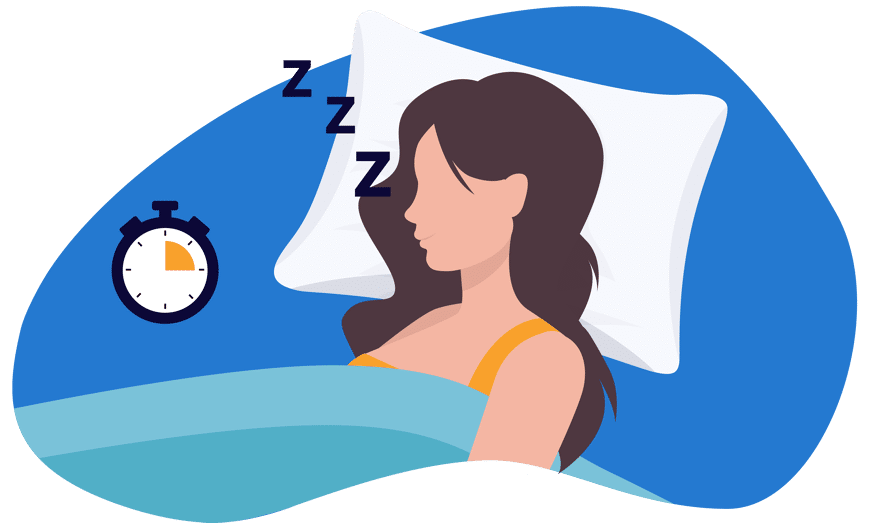
In fact, healthy sleep hygiene has been linked to the following:
- Being able to fall asleep faster
- Experiencing deeper, more restful sleep without interruptions
- Waking up feeling refreshed and energised
- Enhanced cognitive function
- Better cardiovascular and overall health
One study published on JMIR Mental Health [1] even suggests that good sleep hygiene has a positive effect on mental health and treating depression. 🤯
Sleep hygiene aims to increase healthy habits and set up a sleep routine to create the perfect conditions for a good night’s sleep.
But if good sleep hygiene is so important, why do so many of us struggle?
What is poor sleep hygiene?
If you have trouble sleeping, you’re not alone. 😅
Struggling with sleep disturbances, having trouble falling asleep, waking up throughout the night, or suffering from excessive daytime sleepiness are all signs of poor sleep hygiene.
But that’s no need to worry.
By following some simple sleep hygiene techniques, you could be on your way to turning your sleep habits around and experiencing better, higher-quality sleep in no time. 🥳
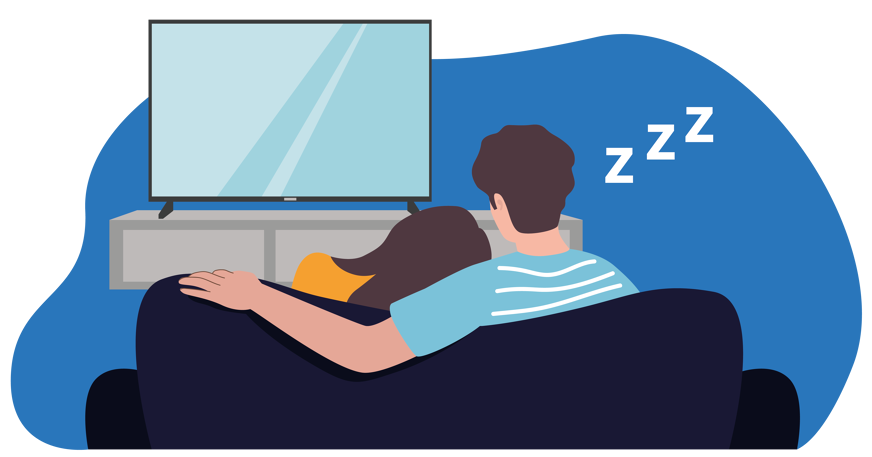
There is one caveat, though: You have to set up new healthy habits and routines - and stick to them.
That’s because poor sleep hygiene is often related to a body clock that’s slightly out of whack.
To reset it, your body needs time and consistency. ⏰
We won’t bore you with the science behind circadian rhythms [2], but it’s important to know that there are two main hormones responsible for regulating sleep cycles, melatonin and cortisol.
If melatonin production increases and cortisol production decreases, you’ll feel sleepier - and vice versa.
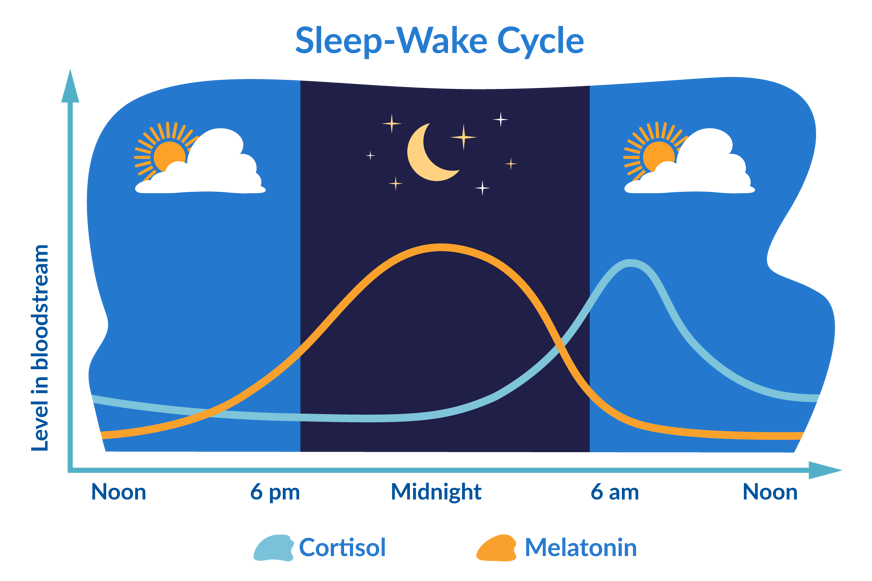
But the internal system is quite delicate and, in our modern environment with all its stress factors, it can easily become a tad confused.
When this happens, you may not produce enough melatonin to make you sleepy.
Or perhaps your cortisol production is in overdrive, leaving you tossing and turning all night long.
Adopting healthy sleep habits resets your inner clock and fixes your sleep-wake cycle.
Top tips for good sleep hygiene
The best way to ensure you're in optimal condition for a good night's sleep is by focusing on your overall health. 🥦
This means that factors like regular exercise, quitting smoking, decreasing alcohol consumption, eating a balanced diet, and managing stress are all very important.
But there are also a few specific habits you can rely on to help improve your sleep hygiene.
Establish fixed bedtimes
It turns out, your parents were right.
Staying up past your bedtime may have felt exciting as a kid, but, as adults, the harm this does far outweighs the joy you'll get from watching just one more episode of the latest show on Netflix. 📺
Unfortunately, it's usually not a good series keeping us up at night - it's stress, anxiety, endless scrolling on social media, or even work.
The key isn't necessarily waking up early, but the first step in resetting your body's internal clock is setting fixed bedtimes
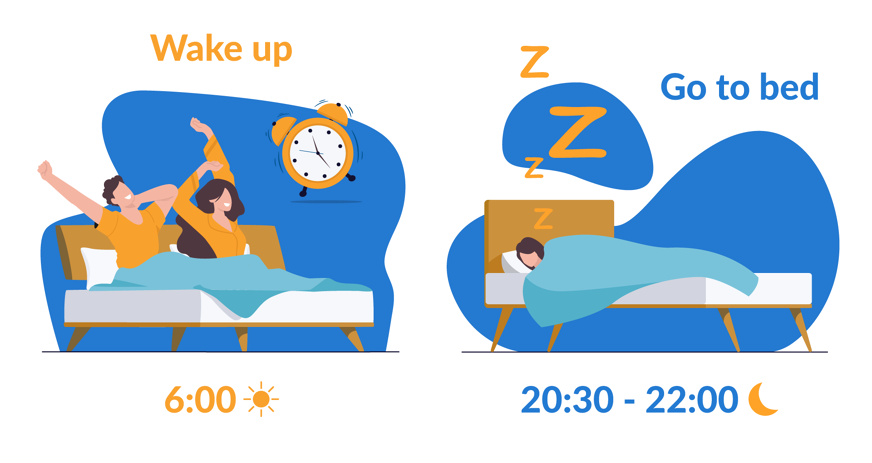
This not only helps your body get used to the right amount of sleep, but it also helps you figure out when it's time to produce melatonin and when it's time to produce cortisol.
You can even use a sunrise-simulating alarm clock to help you wake up more naturally and accelerate morning cortisol production.
We particularly like the Philips Wake-Up Light, which has five natural alarm sounds and coloured sunrise simulation.
Of course, just simply setting random bedtimes isn't enough.
Sleep should be considered a priority, and you need to ensure that time asleep matches up to how much sleep your body requires to function optimally.
Our sleep calculator will help you determine how much sleep you need.
On average, though, adults need roughly seven to eight hours of sleep per night - if you're contemplating less, read our Is 6 Hours Of Sleep Enough article first!
During this time, we cycle through four stages of sleep.
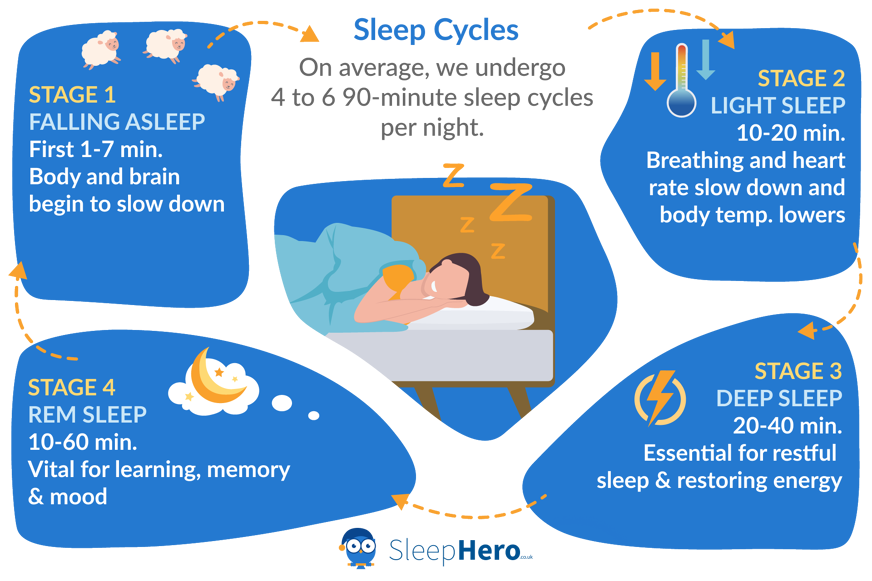
Note, though, that this is actual sleep time, not time in bed.
If you spend ten hours in bed, trying to fall asleep, but are only sleeping for four, you'll wake up feeling groggy.
If you have difficulty waking up when your alarm sounds, if you feel sleepy during the day, or if you take extra sleep at weekends, you are probably getting insufficient sleep. You cannot ordinarily sleep too much and should ensure that you allow time for enough sleep.
Andrew Green
Sleep Therapist
And that takes us back to good sleep hygiene.
Focus on rest and relaxation, especially pre-bed
Many of us follow the wake up, go to work, and come home completely exhausted trajectory.
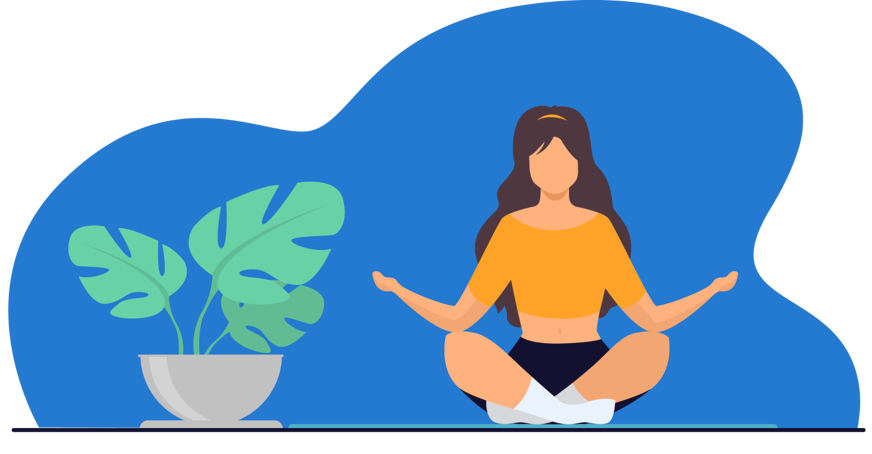
You'd think this would promote healthy sleep, but unfortunately our bodies tend to run on too much adrenaline, which keeps us up.
That's why focusing on rest and relaxation is so important.
Meditation has become increasingly popular, and many people now turn to sleep meditations to help them unwind before bed.
Of course, managing overall stress levels is equally important, and it'd be beneficial to work regular exercise and a meditation practice into your schedule.
You can also adopt daily habits of breath work, body scans, ASMR sounds, journalling, or even some needle work or crocheting to help switch off your monkey brain and detach from stressors. 🐒
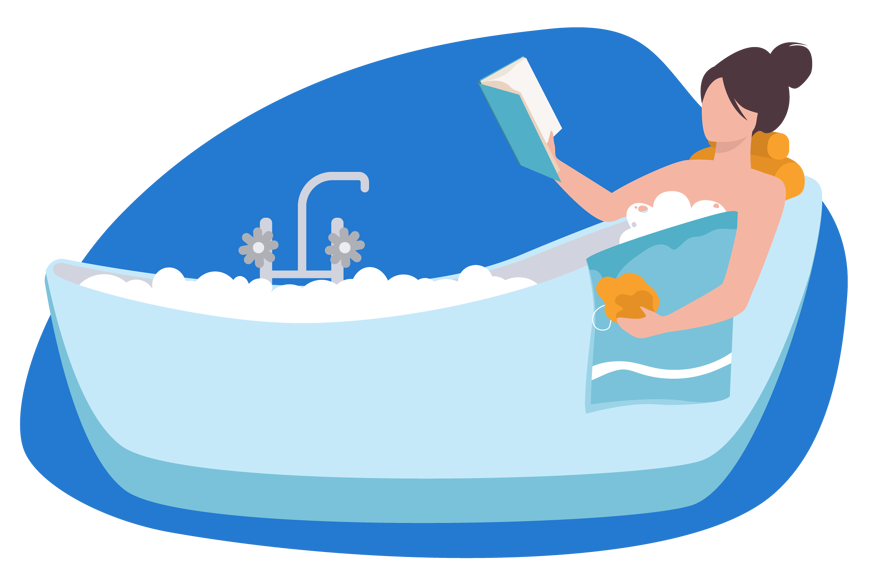
Alternatively, you may wish to explore some of these simple practices for your bedtime routine:
- Listen to relaxing background or sleep music
- Have a hot bath
- Drink a soothing tea or warm milk (such as Horlicks) with honey
- Breathe in essential oils or use lavender pillow mist
- Light a few candles
You could even invest in something like a lavender pillow spray to help reduce anxiety and restlessness, and don't forget how the colour of your bedroom can also affect your mood and quality of your sleep.
All of these relaxing activities can be adopted as daily rituals.
Avoid caffeine and stimulants before going to bed
By now you'll know that drinking a giant cup of mocha won't help you fall asleep faster. ☕️
But avoiding stimulants is actually more than just avoiding coffee.
You also want to avoid any other stimulants, including:
- Alcohol
- Large meals
- Nicotine
- Sugar
- Vigorous exercise
Of course, many of us enjoy a glass of wine with a good dinner, and that's completely okay, as long as you're eating at least three hours before bedtime. 🍷
Stronger stimulants, like coffee or energy drinks, should be avoided four to eight hours before bedtime.
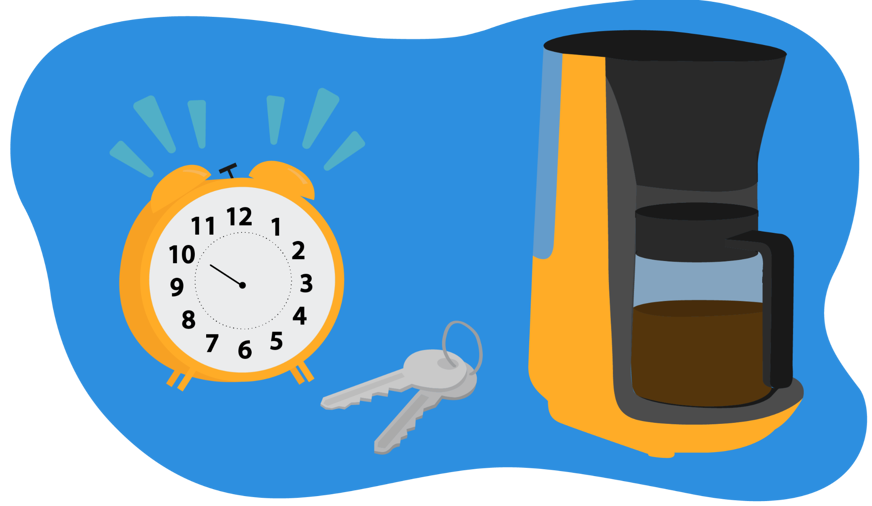
Caffeinated products and stimulants keep you awake for longer, making it difficult to fall asleep, and severely effect the quality of your sleep.
This causes you to feel tired and groggy in the mornings, often resulting in another cup of coffee to keep you going - and so the cycle continues.
Try gentle movement before bed
You should definitely avoid vigorous exercise a few hours before bed, but a bit of physical movement before settling down for the night can work wonders.
Stick to simple daily routines like gentle stretching, some yoga or tai chi, or go for a leisurely walk after dinner.
These simple activities will also help your body release stress and relax a bit more.
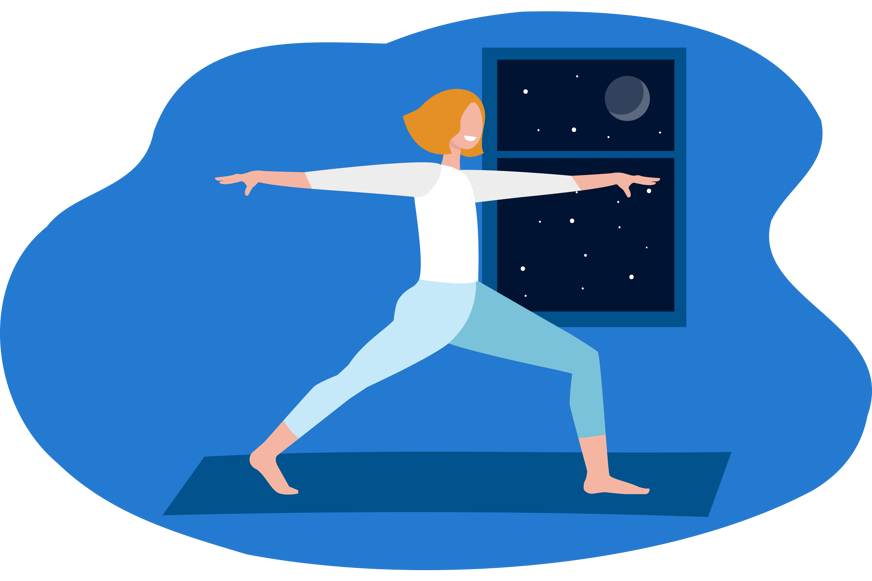
More strenuous exercise is best kept for the first few hours after waking.
This also helps your body break down adenosine (which makes you sleepy) and gives you a "wake up" kick.
Keep your bedroom cool, dark, and silent
We don't all have the luxury of keeping our bedrooms purely for sleep, especially if you're sharing a home with others.
But, creating a proper sleep environment can work wonders in improving overall sleep hygiene.
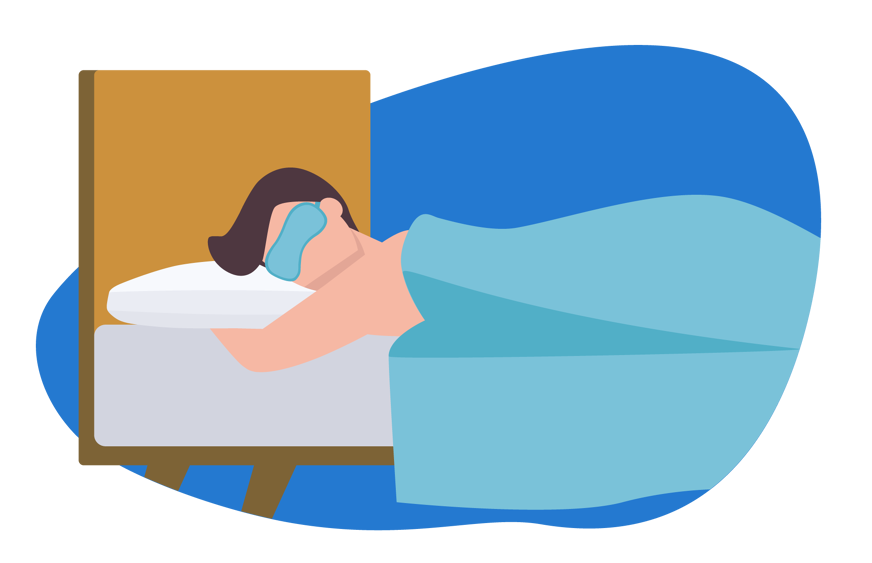
Ideally, your bedroom should be dark, cool, and silent.
This means you should switch off all sources of bright light and electronic devices at least an hour before bedtime.
Blue light especially, like the light emitted from smartphones or TVs, can be detrimental to good sleep hygiene as it may interfere with the production of melatonin. 📱
If you live in the city and are struggling with external sources of light, you may need to make a few more adjustments:
- Invest in black-out curtains or otherwise dark curtains to shield your bedroom from outside sources of light.
- Use a sleep mask, if comfortable, to create a darker feel.
We love the Manta Sleep Eye Mask, which features zero-pressure eye cavities and allows for a 100% blackout experience.
If you live in a noisy area or your partner is a snorer, you may also need to find a good pair of earplugs or look at a white noise machine as an option.
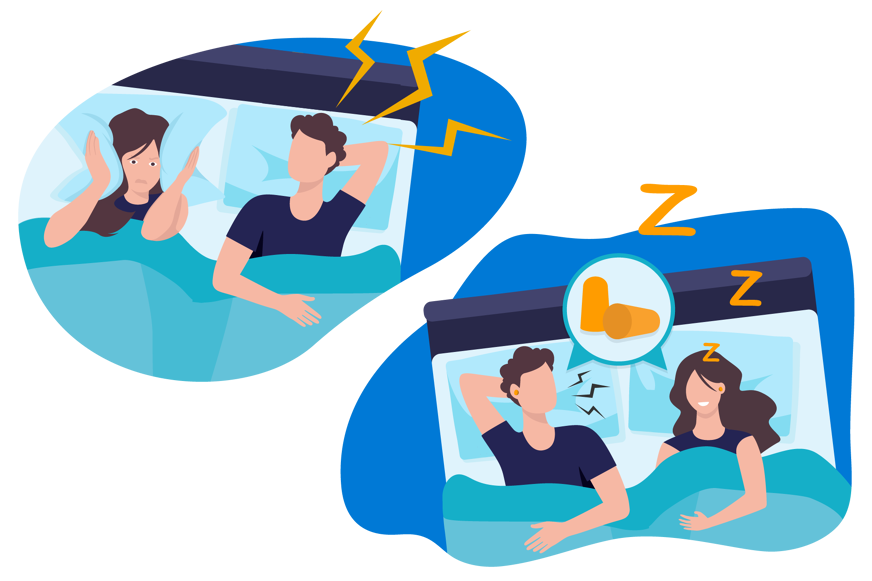
Temperature-wise, your bedroom should be on the cooler end of the scale, somewhere between 15 and 20 degrees Celsius.
Bedrooms that are too hot or too cold may affect your ability to fall asleep, sleep duration, or the quality of your sleep.
- In the heat of the summer, we'd suggest opening up the windows and investing in cool, breathable bedding to help your body and bedroom reach the optimal temperature.
- In winter, it's best to switch off the heating as you'll naturally warm up under the covers.
Our guides on the best temperature for sleep and cooling down a bedroom can help further.
Invest in the right mattress and bedding
While some of us may be able to sleep well on a concrete floor, this isn't ideal.
To help you sleep more comfortably, it’d be a good idea to invest in a supportive mattress and good bedding.
There are many types of mattresses out there, and you may feel more comfortable on pocket sprung mattresses, latex mattresses, or memory foam mattresses.
Our guide on the best mattresses can help you find the right one.
Remember that factors like size, support, breathability, and firmness all play a role as well.
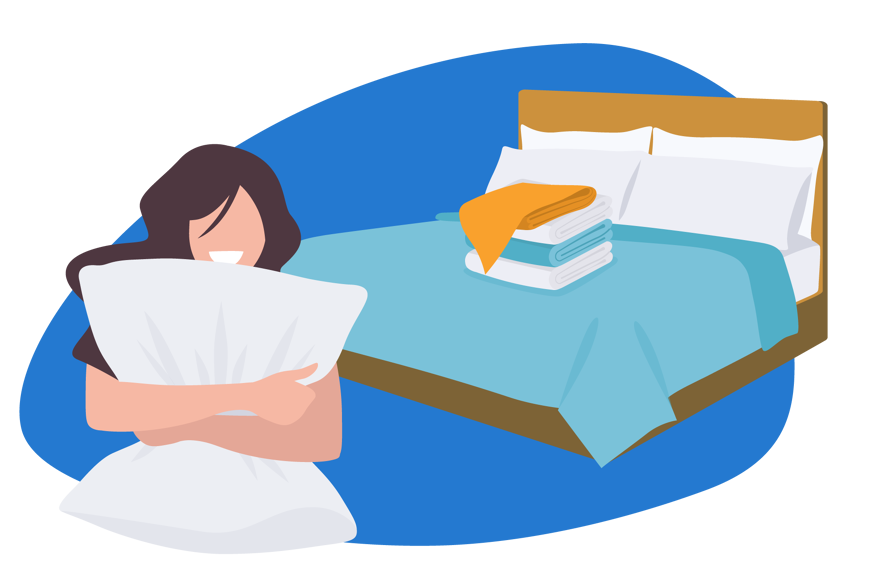
But, your mattress isn't the only thing that matters.
Ensure that the following sleep accessories are also optimal:
- Your pillow should support your head and neck perfectly, avoiding a build-up of strain and tension.
- Your duvet should be breathable enough to keep you comfortable but warm enough so you don't freeze.
- It's worth investing in quality cotton bedding or silk pillowcases to ensure you sleep comfortably.
We've linked to some of our favourite bedding and sleep accessories below.
Your bed should be a safe, comfortable space, so it'll make sense to invest in items that can help you sleep more snugly.
Some of our favourite UK bedding and sleep accessories:
Sleeping in difficult enviroments
Following good sleep hygiene practices is all good and well if you're working a normal 9 - 5 schedule and are largely in control of your bedtime routine.
But what if you're not?
What if your work or living arrangements force you into different sleeping patterns?
Let's look at a few more isolated examples to see how you could best approach sleep then.
Sleep hygiene for shift workers
Humans are designed to feel sleepy when it gets dark.
But many modern professions force us to work through the night or have otherwise irregular sleep schedules. 😔
This generally means you need to prioritise good sleep habits even more, but the following may also help:
- Avoid any caffeine products 3 - 4 hours before you go to bed.
- If you can, don't go to sleep immediately when you come home. Instead, plan your sleeping schedule so you wake up as close as possible to when your next shift starts.
- Invest in blackout curtains to keep your bedroom as dark as possible.
- Avoid relying on melatonin supplements or medication unless you're under the care of a medical professional.
You should also build some pre-bed rituals, like taking a warm bath or drinking tea, to settle down before bed.
Sleep hygiene in a hospital
Hospitals are notorious for creating conditions that aren't conducive to good sleep, including irregular call times, early doctor visits, a lack of fresh air, and excessive noise. 🏥
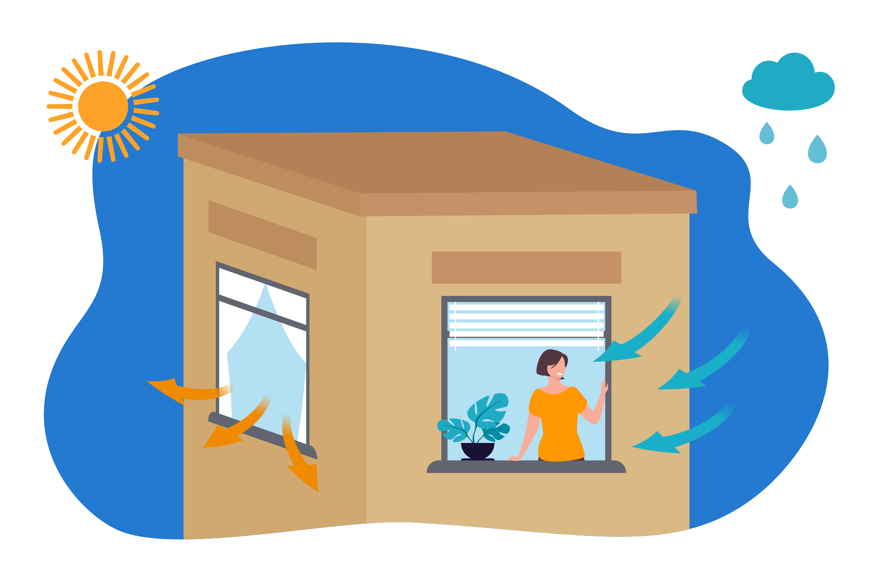
Setting the ideal sleep conditions in a hospital may be more difficult, but not impossible.
- Ask for your curtains to be opened early in the morning so you get a good flood of bright light.
- Ensure the room you're in is dark enough at night so you can sleep well. Use an eye mask as an alternative, as long as it's safe to do so.
- If you're struggling with noise and it is safe for you to do so, then consider sleeping with earplugs.
- Ask for your windows to be opened a few times a day to allow fresh air in, if possible.
- If you are able to move, go for a slow walk or do some simple stretches.
Of course, please check any specifics with your doctor or nursing staff.
Being in a hospital itself may be quite stressful, so you may feel inclined to listen to some relaxing music, seek the help of sleep meditations, or turn to reading a good book with noise-cancelling headphones.
These can help you find some calm amidst the chaos.
Sleep hygiene on a plane
Frequent travellers will be well-aware that sleeping on a plane or train isn't always ideal, and being bumped up to first class only seems to happen in the movies.
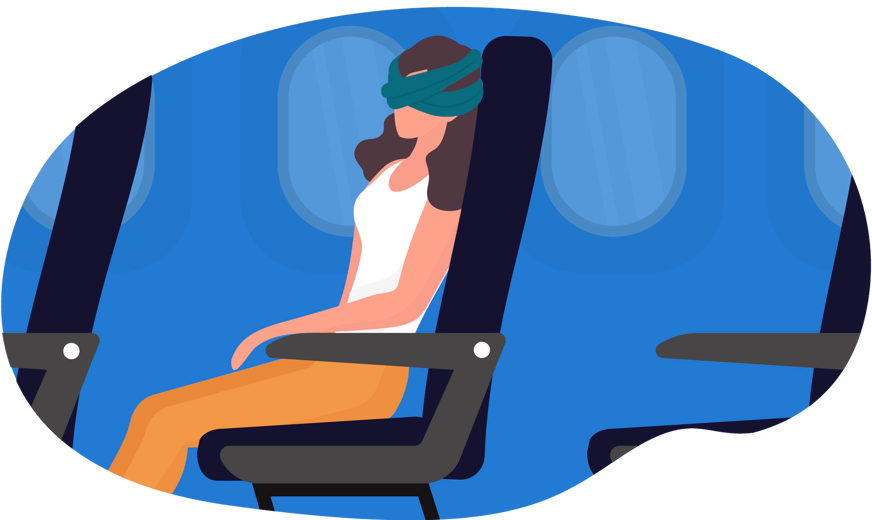
Even if lights are switched off on overnight flights, space is tight, there are hundreds of people around, and you'll find yourself trying to get comfortable on some of the smallest seats available.
So what can you do?
Turns out, the secret to getting good (ok, decent) sleep on a plane starts before you even board.
- Choose the seat you're most comfortable on ahead of time, especially if you're flying a long distance.
- Consider the time zone you're travelling into - if you're arriving at your destination at night, it may be worth staying awake during the flight so you can adjust to the new time zone better.
- Board your flight well-rested and without any sleep debt.
- Wear comfortable clothes that allow you to snuggle up as best as possible.
- Invest in good earplugs or noise-cancelling headphones.
- Get a blackout sleep mask, like the Manta Sleep mask, which we love.
- Invest in a supportive travel pillow, like the Ostrichpillow Go Neck pillow.
- Avoid drinking too much caffeine or alcohol on the flight.
Finally, you may also wish to invest in some sleep-inducing essential oil or sleep tea that you can use before trying to get some shut-eye on the plane.
Sleeping in a new place
Many people struggle to sleep well if it's their first night in a new hotel room or when sleeping over at someone else's house.
This is actually a natural instinct.
If you're sleeping in a new place for the first time, a part of your brain stays extra alert to make sure you're in a safe environment.
There's nothing you can do to turn off that biological wiring, but you can ensure you give your body enough signals so it knows it's safe. 🥰
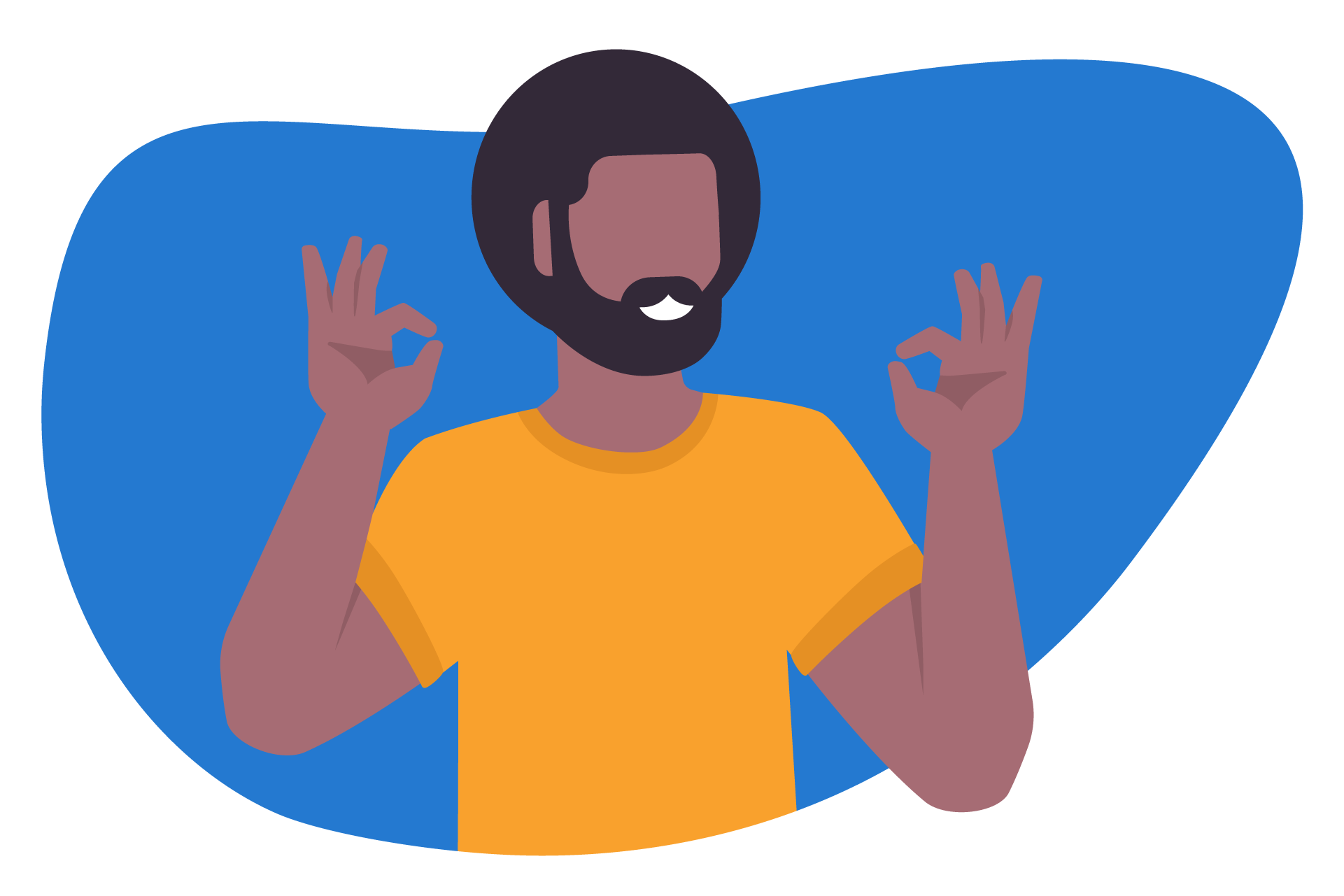
If you've already established a good sleep routine that involves practices like meditation, evening stretching, sleep tea, deep breathing, or the like, you can continue these habits in the new environment.
You may also want to consider adding some extra familiarity, like your pillow from home, a teddy that sleeps in your bed, or a snuggly blanket that you're used to.
All of these give your body a sense of calm and familiarity.
Sleep hygiene for children
Most children sleep quite well naturally, but it is the responsibility of the parents to ensure optimal sleeping conditions.
Babies and children need much more sleep than adults do:
- Newborns up to 3 months: 14 - 17 hours of sleep
- Babies between 4 and 11 months: 12 - 15 hours of sleep
- Infants up to 2: 11 - 14 hours of sleep
- Young children under the age of 13: 9 - 13 hours of sleep
Parents should set strict bedtimes for their children, and ensure that bedroom conditions are conducive to good sleep.
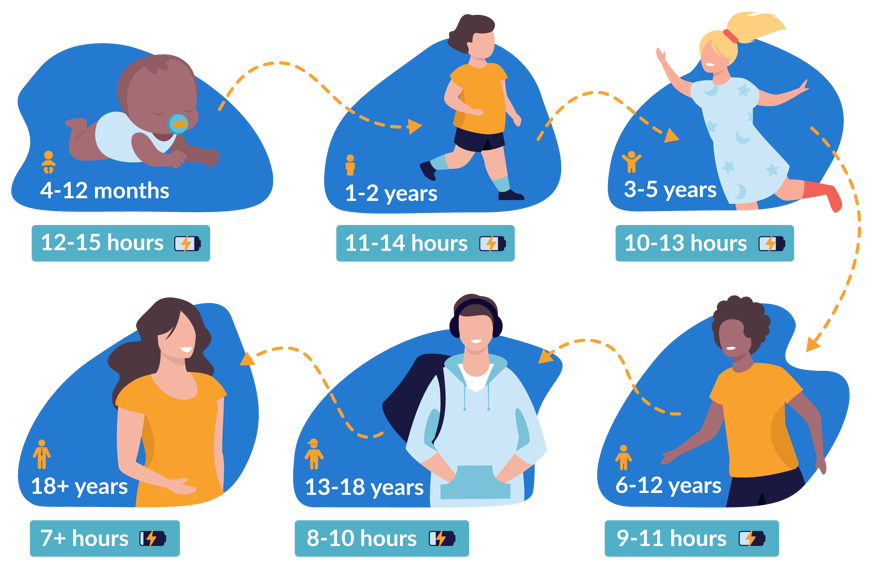
Getting the right bed or accessories - like a good cot mattress or toddler pillow - may be able to assist.
If you’re concerned about your child’s sleep habits, you can turn to the NHS sleep hygiene guide for children [4] for recommendations or consult your GP.
Sleep hygiene for people with medical conditions
Some medical conditions require more stringent adherence to good sleep habits.
People with epilepsy, for example, are more likely to suffer from seizures if their sleep is impaired.
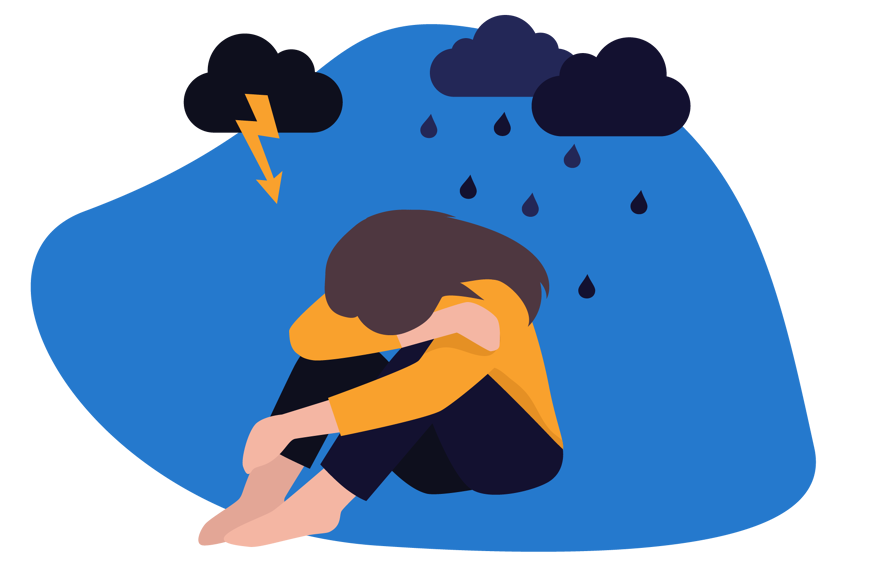
The sleep hygiene tips we've shared above are generally safe to follow, but if you're struggling with a certain medical condition, please talk to your GP about best sleep practices.
Similarly, if you're struggling with specific sleep disorders, like sleep apnoea or chronic insomnia, or severe depression and anxiety disorders, it's best to ask your healthcare provider for advice.
Does medication help with sleep hygiene?
If you’re having severe problems with sleep, you may want to turn to sleep medicine.
Sleeping pills may help in the short term, but they’re not an effective long-term solution.
They can also become addictive.
Ultimately, sleeping pills only mask a symptom instead of solving the root causes.
Adopting healthy sleep rituals, in contrast, will help you make long-term and chemical-free changes.
However, if you do require some assistance and are finding that even the best sleep hygiene tricks in the book aren't working, we strongly advise you to turn to a medical professional for the best advice on sleeping pills and supplements. 👩⚕️
You can turn to the sleep hygiene NHS guides [5] or contact your GP for additional information.
Do good sleep habits help?
Good sleep hygiene can help you tackle some of the issues concerning sleep and our modern lifestyles.
They are not cure-alls, but following good sleep habits will set you on the right path to getting the quality you sleep you need - and deserve.








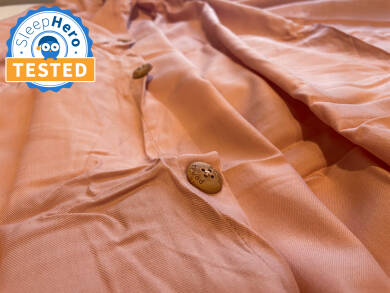



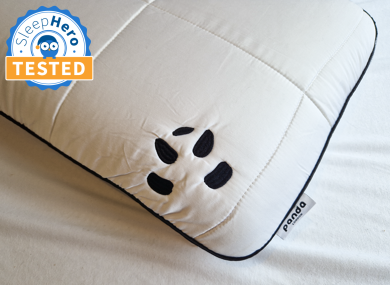
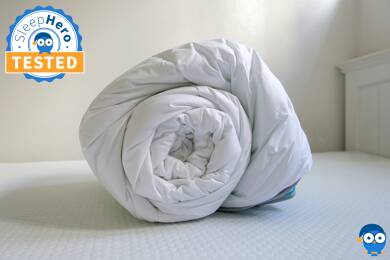

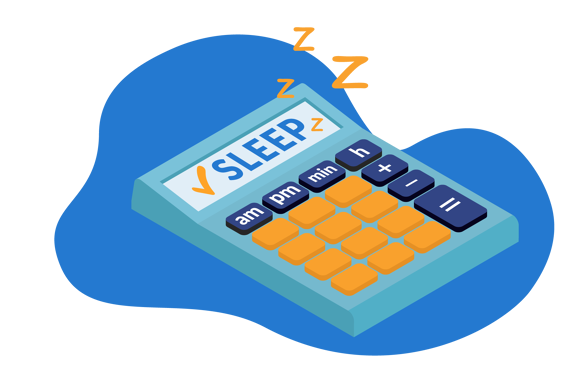
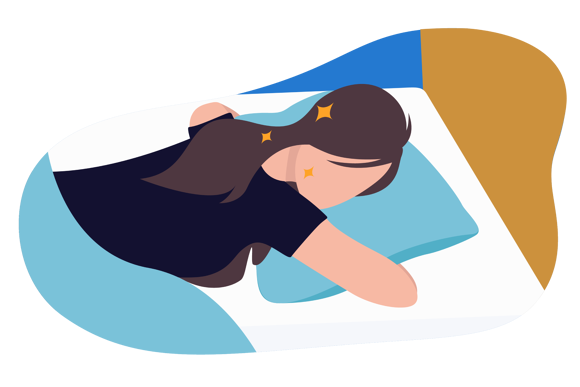
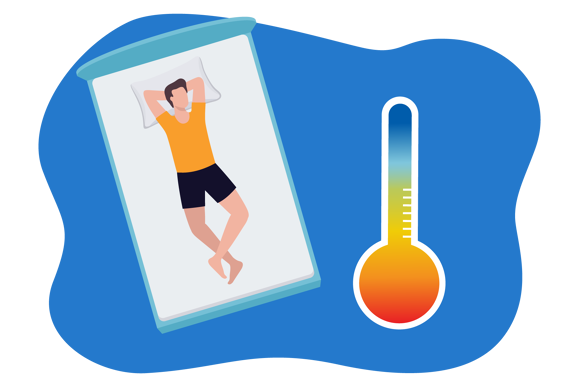


Alternatively, message us directly via the Contact Us page.